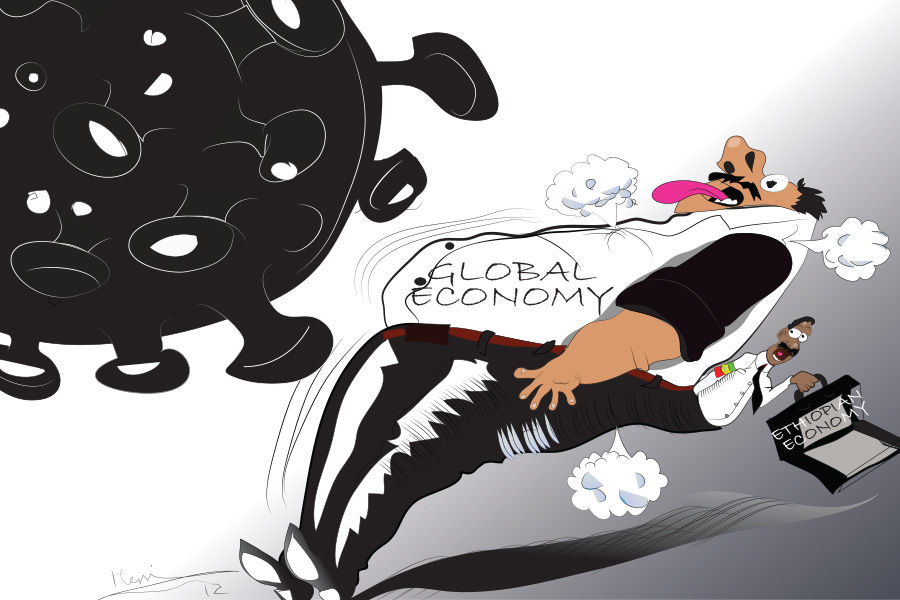
Jun 19 , 2021
By Asegid Getachew
Businesses operate in a very competitive and dynamic environment. Technological processes, product concepts and designs, and consumer tastes keep changing with time. To continue as a going concern amid such a change, businesses need to keep adapting with the pace of the dynamism.
One strategy that businesses need to follow is to have a robust research and development (R&D) system in place. This enables them to gain a competitive edge by helping them understand the needs of the market, continuously upgrade the features of their offering, and also launch new products and services.
Globally, out of the total of over a trillion dollars in R&D outlays, nearly a quarter of it comes from the two world-leading economies, the United States and China, according to a report by the National Science Board, headed “Research and Development: US Trends and International Comparisons.” It is also revealed that about 70pc of the total R&D investment in the US in 2017 came from the business sector.
The likes of Amazon alone have invested a total of 22.6 billion dollars in R&D in 2018. Putting this into perspective, the amount is twice or greater than the annual budget of some countries in the developing world.
"Amazon has poured resources into AWS, Alexa and technologies like computer vision to support ambitious projects such as the Amazon Go cashier-less store of the future," Vox has reported.
It is not a surprise that the biggest spending when it comes to R&D are tech companies, with Alphabet, Intel, Microsoft and Apple coming on the heels of Amazon when it comes to the United States. The biggest R&D spender in China has usually been Alibaba, at about a modest 3.6 billion dollars compared to American firms.
It is a completely different story in developing countries such as Ethiopia. Not many of the economies in sub-Saharan Africa invest much in R&D, where the share as a percentage of GDP is 0.4pc. This is compared to the worldwide average of 1.7pc. Ethiopia does relatively better than the regional average at 0.6pc, spending an estimated 740,000 dollars in R&D. Universities make up for much of this, while business' spending is nearly non-existent, and there are just 44 researchers for every one million people in Ethiopia.
Organisations in this part of the globe mostly depend on technology acquisition and the associated knowledge transfer that comes with it. True, technology acquisition may at times be less costly, takes less amount of time to implement and be less risky, however, it hampers the level of domestic innovation and creativity.
Business organisations in Sub-Saharan Africa should not consider R&D expenditure as a simple outlay of resources. They should rather see it as an investment with the potential to help firms to stay competitive and excel in the international market. Businesses should not hesitate to set up an R&D team engaged in product improvement and development activities.
Collaboration with government agencies and universities is also very crucial as it can enable them to increase the diversity of expertise and knowledge that goes into their pursuit of innovation. This should go beyond naming centres of excellence in college campuses and focusing on creating the necessary linkages with industries, increasing research funding, and putting in place a rigorous system for producing PhD candidates.
Of course, R&D is not a silver bullet, it is one of many critical pillars in growing and revolutionalising businesses and economies.
"Innovation has nothing to do with how many R&D dollars you have," Steve Jobs once said. "When Apple came up with the Mac, IMB was spending at least 100 times more on R&D. It's not about money. It's about the people that you have, how you're led, and how much you get it."
PUBLISHED ON
Jun 19,2021 [ VOL
22 , NO
1103]


Fortune News | Apr 20,2019

Radar | May 16,2020

Fortune News | Oct 30,2022

Radar | Oct 02,2023

Editorial | Mar 14,2020

Advertorials | Sep 05,2024

Editorial | Mar 01,2024

Radar | Apr 08,2024

Commentaries | May 27,2023

Fortune News | Jun 22,2024

Photo Gallery | 174482 Views | May 06,2019

Photo Gallery | 164708 Views | Apr 26,2019

Photo Gallery | 154883 Views | Oct 06,2021

My Opinion | 136683 Views | Aug 14,2021
Editorial | Oct 11,2025

Dec 22 , 2024 . By TIZITA SHEWAFERAW
Charged with transforming colossal state-owned enterprises into modern and competitiv...

Aug 18 , 2024 . By AKSAH ITALO
Although predictable Yonas Zerihun's job in the ride-hailing service is not immune to...

Jul 28 , 2024 . By TIZITA SHEWAFERAW
Unhabitual, perhaps too many, Samuel Gebreyohannes, 38, used to occasionally enjoy a couple of beers at breakfast. However, he recently swit...

Jul 13 , 2024 . By AKSAH ITALO
Investors who rely on tractors, trucks, and field vehicles for commuting, transporting commodities, and f...

Oct 11 , 2025
Ladislas Farago, a roving Associated Press (AP) correspondent, arrived in Ethiopia in...

Oct 4 , 2025
Eyob Tekalegn (PhD) had been in the Governor's chair for only weeks when, on Septembe...

Sep 27 , 2025
Four years into an experiment with “shock therapy” in education, the national moo...

Sep 20 , 2025
Getachew Reda's return to the national stage was always going to stir attention. Once...

Oct 12 , 2025
Tomato prices in Addis Abeba have surged to unprecedented levels, with retail stands charging between 85 Br and 140 Br a kilo, nearly triple...

Oct 12 , 2025 . By BEZAWIT HULUAGER
A sweeping change in the vehicle licensing system has tilted the scales in favour of electric vehicle (EV...

A simmering dispute between the legal profession and the federal government is nearing a breaking point,...

Oct 12 , 2025 . By NAHOM AYELE
A violent storm that ripped through the flower belt of Bishoftu (Debreziet), 45Km east of the capital, in...